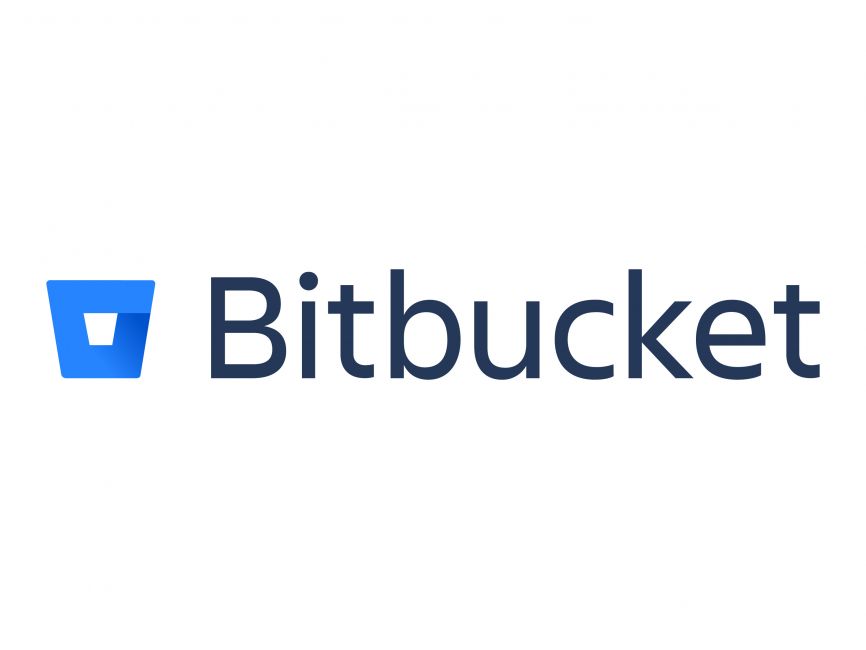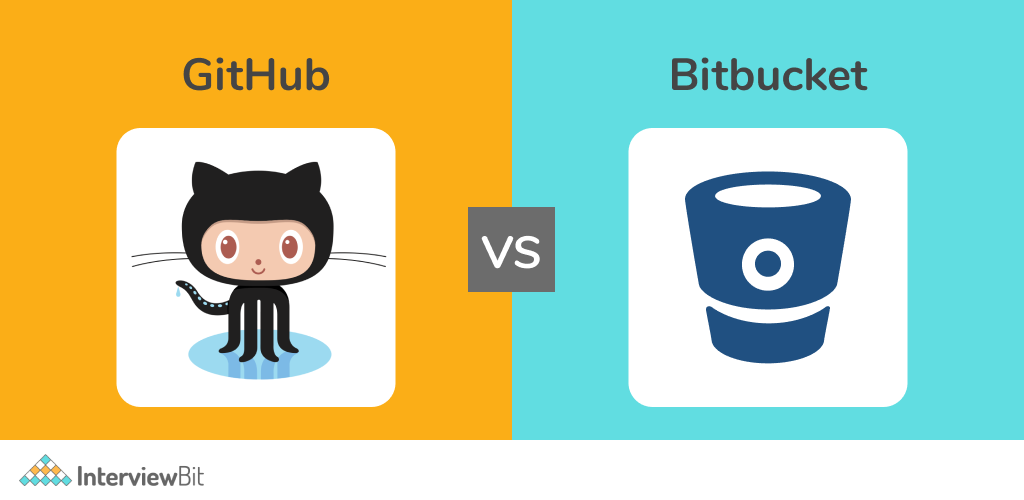In a development project, selecting the right repository hosting service is an essential step. Hosting your code is a crucial aspect of your work, and determines your productivity. Therefore, having the right repository hosting services can be challenging since it affects the productivity of the development team.
If you plan to host your code, you must choose a platform that meets your specific goals and needs. GitHub and Bitbucket are among the most popular solutions for development projects, offering different deployment models. GitHub and Bitbucket use Git – a type of VCS (Version Control System) that enables easier tracking of changes in files. In other words, git lets users see when a file has been modified, who made the change, and why.
But how do you choose which one is right for you? In this blog, we’ll compare Bitbucket vs Github and find out which one is the right fit for you.
Confused about your next job?
Github and Bitbucket are hosting platforms that offer developers access to both public and private repositories. The functionality of Bitbucket and GitHub is very similar, and both allow you to perform basic operations, such as:
- Create and manage repositories
- Utilizing Two-Factor Authentication (2FA)
- Make pull requests
- Perform code reviews
- Enhances team collaboration and efficiency of the process.
- Make use of inline editing and Markdown support
- Keep track of issues, etc.
In spite of their similarities, there are many differences that should be taken into consideration before deciding which is a better option for you. Let’s fully grasp what each platform offers.
What is BitBucket?

Founded in 2008, Bitbucket was an independent startup in Australia that specializes in hosting Mercurial projects. After being acquired by Atlassian in 2010, the company added support for Git repositories a year later. Bitbucket is basically a repository management tool that is also known as git repository management and is designed specifically for team experts and professionals. With it, you can manage your git repositories, collaborate with your team on your code, and follow the development process from beginning to end, and many more.
The fact that Bitbucket is an Atlassian product (makers of Trello and other tools) gives you an attractive interface right from the get-go. A significant feature of Bitbucket is its built-in capabilities for VCS (Version Control System) support. Access control, workflow control, pull requests, and integration for the full rest API are all handled through Bitbucket.
Features Of Bitbucket
- Provides unlimited private repositories for both Mercurial and Git (Distributed Version control systems).
- Reduces clone times by supporting Git Large File Storage (LFS).
- Supports third-party APIs and integrates seamlessly with Trello.
- Compatible with most operating systems, including Mac, Windows, and Android.
- Direct integration is available with Jira, Bamboo, Crucible, and JenkinsExternal.
- External authentication is supported for GitHub, Google, Facebook, and Twitter.
- Offers a full Rest API to build new custom features that are not available on the marketplace.
- A Bitbucket Snippet allows you to handle multi-file snippets of any type.
- Allows developers to restrict branch access by explicitly managing branch permissions.
- It comes with issue tracking, continuous delivery, and wikis.
Advantages
- Easier to connect with other DevOps tools (like Jenkins, Jira)
- Effective in managing code compliance and security requirements
- Adaptable to a different OS
- Create authentication for social media support, etc.
Disadvantages
- Loses its stability when the process becomes heavy, etc.
- Integrating third-party applications is not easy, etc.
What is GitHub?

More than 57 million developers use GitHub, the largest version control system on the market. GitHub is an open repository hosting service, which was founded in 2004 and was acquired by Microsoft in 2018. The open-source community also loves it – because public repositories are free in terms of use. Almost any number of users can access your public repositories.
As its name implies, it supports Git and only hosts projects that utilize Git version control system (VCS) rather than Mercurial (other models of VCS). GitHub is a git repository hosting service that provides a Web-based graphical interface and many features related to access control and collaboration. It was designed to make it easier for developers to track changes within a project. This enables programmers to collaborate on fixing bugs and hosting open-source projects. Since GitHub’s interface is simple enough to use by newbie coders, even novices can make use of Git. In general, Git requires some technical expertise and command-line knowledge to use without GitHub. Also, there are UI’s for using Github which make it easier for noobies to use Github.
Features of GitHub
- Highlights code comments and facilitates collaborative code review.
- It also provides features like pull requests, commit, etc., that enhance team collaboration.
- Defines milestones and labels for projects.
- Comparison view between branches.
- Feature to highlight syntax.
- Supports only Git VCS.
- Zendesk, Azure, Cloudbees, Google Cloud, Amazon, Code Climate, and Heroku have direct integrations available.
- More than 200 programming languages are supported.
- Third-party API integrations for bug tracking and cloud hosting are available.
- Support for Jira, Slack, and other tools for managing projects and testing.
- The GitHub application is available in Mac desktop, Windows, and Android versions.
Advantages
- It’s reliable and super-fast.
- Open-source and free, supports multi-users.
- Used to share work with the general public, etc.
Disadvantages
- Limited private repository
- Only supports Git VCS, etc.
Difference between BitBucket and GitHub

Comparing BitBucket with GitHub, let’s examine some critical characteristics that make both platforms unique.
| Parameter | BitBucket | GitHub |
| Developer | The creator of Bitbucket is Jesper Noehr. | The contributors to the development of GitHub are Chris Wanstrath, Tom Preston-Werner, P. J. Hyett, and Scott Chacon. |
| Supported VCS | Both Mercurial and Git VCS (Version Control System) are supported. | Only Git VCS (Version Control System) is supported. |
| Public Repository | Users can have unlimited free repositories. Almost any number of users can access your public repositories. | Users can have unlimited free repositories. |
| Private Repository | You are allowed to have a free repository on Bitbucket, but it is restricted to five collaborators. Beyond that, you need to pay if you have more than 5 collaborators. | You are allowed to have a free repository on Github, but it is restricted to three collaborators. Beyond that, you need to pay if you have more than 3 collaborators. |
| Navigation | Bitbucket does not have a code-navigation feature. | On GitHub, users are able to use the code-navigation feature. |
| User Interface | Bitbucket has a very organized and clean interface. | GitHub has a simple interface. However, the UI is cluttered and confusing, unlike Bitbucket. |
| Wikis | Bitbucket allows you to add wikis to each of your repositories, and choose whether they are public or private. | On GitHub, you can’t add a wiki to a free private repository, unlike with Bitbucket. You can add it to free public repositories only. |
| Support and Community | Business and enterprise teams often use Bitbucket. Thus, it is primarily used for private repositories by its users. | In contrast, GitHub is the largest host for public code and thus has a large open-source community. |
| Project Analysis | Bitbucket facilitates the visualization of analysis with charts. | As of now, GitHub does not offer this feature; however, users can view the commit history for a specific file (revision or individual change to file by contributors of projects ). |
| Direct Integration | Direct integration is available with Jira, Bamboo, Crucible, and JenkinsExternal. | Zendesk, Azure, Cloudbees, Google Cloud, Amazon, Code Climate, and Heroku have direct integrations available with GitHub. |
| Flexibility | Bitbucket offers more flexibility by default as Bitbucket can import repositories from Git, CodePlex, Google Code, SourceForge, and SVN. | Meanwhile, GitHub can import repositories from Git, SVN, HG, and TFS. |
| Extra features | Jira Integration, issue tracking, bitbucket snippet, etc. | Two-factor authentication, Github pages, highlight syntax, etc. |
| Price | It is 10x cheaper than Github, but it offers equal functionality. | It is relatively more expensive to use Github than Bitbucket. |
Conclusion
When it comes to hosting source code, Bitbucket and GitHub are both excellent and have specific uses. Both offer public and private repository options. GitHub is better suited for individual projects, while BitBucket is much better for enterprise-level projects. In broad terms, both Bitbucket and GitHub have advantages and features that make them both well-suited to certain types of development teams.
- A powerful open-source platform such as GitHub allows you to manage a small team or personal projects that you are comfortable sharing with the public.
- In the case of enterprises or businesses interested in storing their private, proprietary code, Bitbucket is an excellent choice.
The decision is yours! How would you rank Bitbucket versus GitHub?
Frequently Asked Questions
Is BitBucket similar to Github?
GitHub revolves around public code, while Bitbucket is designed mainly for private projects. This is the primary difference between GitHub and Bitbucket. GitHub is a leading open-source community, while Bitbucket is mostly used by enterprises and businesses.
Do companies use BitBucket or Github?
Despite its popularity among individuals, Bitbucket is mainly geared toward businesses because most users use it for private repositories. As for GitHub, it is the largest host for public code, and in turn, it has a large open-source community.
Why BitBucket is used?
With BitBucket, you can manage and store your code with more flexibility. Using Bitbucket’s branch permissions, you can control who is allowed to write or merge to specific branches. That way, only the appropriate people can make changes. Moreover, you can manage your git repositories, collaborate on your source code, and follow the development process.
Is BitBucket Dead?
July 1, 2020, marks the end of Atlassian’s Bitbucket Mercurial support. A number of teams still use Mercurial repositories. Therefore, Mercurial is not dead.
Is BitBucket a DevOps tool?
Yes, Bitbucket is a DevOps tool offered by Atlassian.




